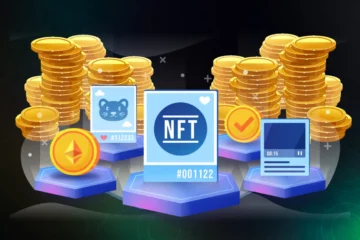Representatives of the Singularity crypto project announced the integration with Chainlink VRF on the leading Ethereum network. The procedure allowed Singularity to access the tamper-proof and verifiable data source needed to mint non-fungible tokens (NFTs). Customers of the product got the opportunity to use the most transparent mechanism.
Singularity has stated the importance of having access to a secure and impartial random number generator that can be independently verified. According to the developers, Chainlink VRF was the obvious choice. The algorithm is secure and backed by cutting-edge academic research and the world’s largest network of decentralized oracles.
Chainlink VRF works by integrating block data that remains unknown when a request is made with the oracle node’s pre-verified private key to generate a cryptographic proof and a random number.
The Singularity smart contract only accepts the random input if it has a valid confirmation, which a tamper-proof VRF process can only generate.
Thus, the Fisher-Yates algorithm will be used for NFT, which will make NFT minting more transparent and open to all network users.




